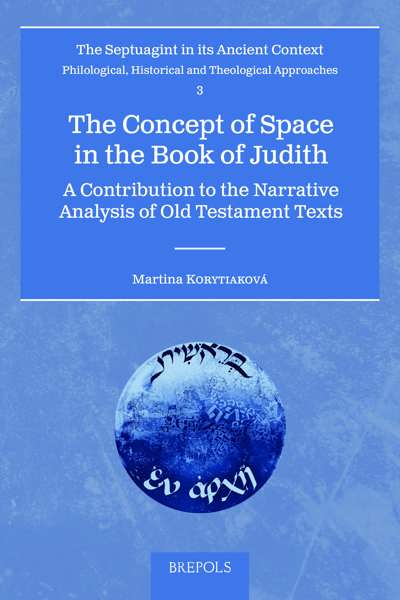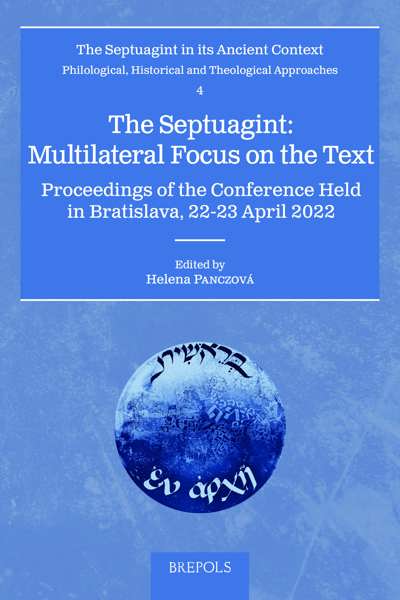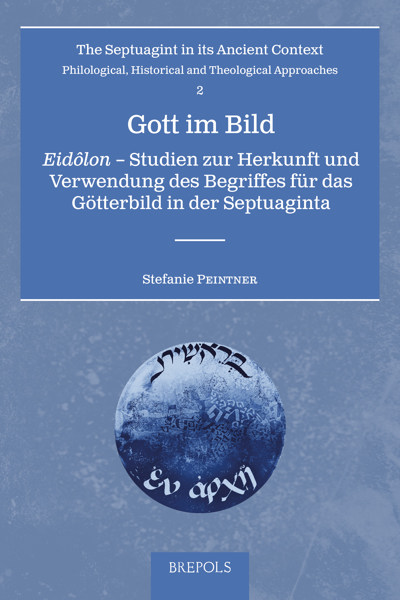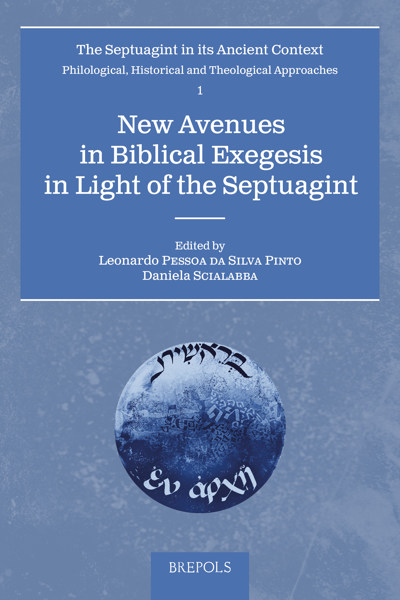
The Septuagint: Multilateral Focus on the Text
Proceedings of the Conference Held in Bratislava, 22-23 April 2022
Helena Panczová (ed)
- Pages: approx. 320 p.
- Size:156 x 234 mm
- Illustrations:3 b/w, 2 tables b/w.
- Language(s):English
- Publication Year:2024
- € 80,00 EXCL. VAT RETAIL PRICE
- ISBN: 978-2-503-61017-7
- Paperback
- Forthcoming (Jun/24)
- € 80,00 EXCL. VAT RETAIL PRICE
- ISBN: 978-2-503-61018-4
- E-book
- Forthcoming
*How to pre-order?
The text of the Septuagint studied it its various aspects, from textual criticism, over lexis and translation technique, to Jewish and Christian reception
Helena Panczová, PhD in Classical Philology (Comenius University, Bratislava), is Assistant Professor at the Faculty of Theology, Trnava University. She specializes in Biblical Greek, Greek lexicography (author of Greek-Slovak Dictionary from Homer to Christian Authors, 2012), and patristic exegesis. She is the editor of a Slovak patristic series, Starokresťanská knižnica, where she also contributed with her translations of Gregory of Nyssaʼs Life of Moses (2012) and Commentary on the Song of Songs (2015, 2019, 2020).
The phenomenon of the Septuagint is a matter of interest for several areas of research – not only for Old Testament scholars, but also for researchers of Hellenistic Judaism, patristic exegesis, translation theory and practice, and others. What they all have in common is the text of the Septuagint. Unfortunately, the research is often so compartmentalized that scholars do not know about each other’s work and cannot profit from it. The aim of the conference “The Septuagint: Multilateral Focus on the Text” was to bring together scholars studying the text of the Septuagint it its various aspects: its reconstruction, peculiarities of language, and lexical semantics, in their relationship with the Semitic background and within the Greek-speaking world, whether Jewish or Christian. These different approaches to the same matter are bound to lead to mutual enrichment.
Preface (Helena Panczová)
I. Lexis of the Septuagint
The “Historical and Theological Lexicon of the Septuagint”: Presentation of the Project and a Sample Entry from Volume 2: δίγλωσσος (Eberhard Bons)
Behind the Scenes of HTLS: The Case Study of ἐντρέπω (Laura Bigoni)
The Question of Neologisms: Their Frequency and Character (Andrew Keenan)
Are the Waters Full of Snakes (Ἑρπετά) in LXX Genesis 1? (Tyler Horton)
II. Pentateuch
The Law Concerning Witnesses in Deut 19:15-21: Comparing the Septuagint, Masoretic Text, Targum Onqelos and Vulgate (Július Pavelčík, Adam Mackerle & Viktor Ber)
The Description of the Table of Showbread in the Letter of Aristeas (Ep. Arist. 57‒65) and Exod 25:23‒25 (Ekaterina Druzhinina)
Interrogatives in the Greek Pentateuch: The “Why” (τί ὅτι) of Translation Technique (Robert Walker)
III. Kingdoms and the Kaige Revision
New – and Old, but Forgotten – Insights in Samuel, Kings, and Other Texts, and Their Relevance for Septuagint Studies (Siegfried Kreuzer)
Subtlety in Kaige Revision of Kingdoms (Timothy A. Lee)
IV. Prophets, Proverbs, and Judith
The Sense of the Term καταλλαγή in Isaiah 9:4(5): An Analysis of Greek Rendering of the Hebrew Allegory; the Implications for Contextual Reading of Paul’s Message (František Ábel)
Focus on Folly through Two Major Additions in the LXX Proverbs 9:12, 18 (Jozef Jančovič)
To Meet with or to Come against? On the Meaning(s) of the Preposition πρός in Jdt 1:6a (Martina Korytiaková)
V. Psalms
Syntactic Questions Regarding Psalm 44[45]: Does Greek Colometry Make more Sense than Hebrew? (Konrad Kremser)
Hoc Graecus codex indicat – Augustine Consulting the Septuagint for his Enarrationes in Psalmos (Clemens Weidmann)
The Mystery of the Missing Third Day of the Week: Greek Superscriptions of Psalms in Patristic Exegesis (Helena Panczová)
Bibliography
Index



